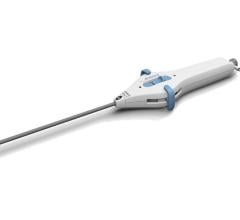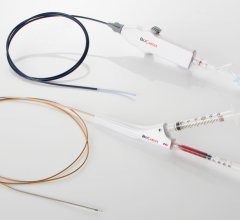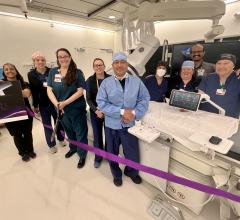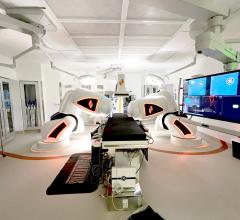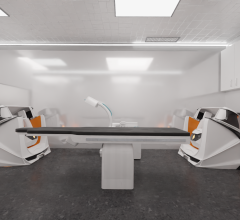
January 5, 2022 — Stereotaxis announced a recent publication in Frontiers in Cardiovascular Medicine titled “Atrial Fibrillation Ablation Using Robotic Magnetic Navigation Reduces the Incidence of Silent Cerebral Embolism. This multi-center, prospective study evaluated 166 patients with paroxysmal or persistent atrial fibrillation (AF) who underwent pulmonary vein isolation using either Stereotaxis’ Robotic Magnetic Navigation (RMN) technology or manual contact force ablation catheters.
All patients received cerebral magnetic resonance imaging within 48 hours before and after the ablation procedure to assess cerebral embolism. Patients treated using RMN had greater than 82% reduced incidence of silent cerebral embolism (SCE) at 5.77% compared to 32.26% in patients treated with manual catheter ablation (p<0.001). The study concluded, “ablation technology is the only independent risk factor of SCEs, and RMN can significantly reduce the incidence of SCEs resulting from AF ablation.” This is the first study comparing incidence of SCEs following cardiac ablation with RMN compared to manual catheters and was performed independent of Stereotaxis in China by Wuxi People’s Hospital, Fuwai Hospital, Xuzhou Central Hospital, and the First Hospital Affiliated to Soochow University.
“The results of this study further strengthen the significant safety and efficacy benefits we have experienced using robotic technology to treat over 600 arrhythmia patients,” said Dr. Ru-Xing Wang, director of cardiology at Wuxi People’s Hospital. “We are grateful to offer our patients the best possible care and look forward to advance clinical research and robotic technology development.”
“This pioneering research on an often overlooked aspect of cardiac ablation demonstrates that technology innovation can meaningfully improve patient safety,” said Dr. Yan Yao, Director of the Arrhythmia Center at Fuwai Hospital. “This strong data supports our decision to build a world-class robotic cardiac center of excellence in Beijing.”
Stereotaxis’ Robotic Magnetic Navigation technology introduces the benefits of robotic precision and safety to cardiac ablation, a common, minimally invasive procedure to treat arrhythmias. Multiple studies have demonstrated reduced incidences of heart perforation and other major adverse events from the use of robotics for cardiac ablation when compared to manual hand-held catheters. This is the first study assessing the impact of robotics on silent cerebral emboli. Studies have demonstrated that incurring acute cerebral lesions during cardiac ablation procedures may be associated with longer-term adverse neuropsychological outcomes such as an increased risk of stroke and cognitive impairment.
For more information: www.RoboticEP.com/clinical-data/publications-database/


 January 29, 2026
January 29, 2026 



